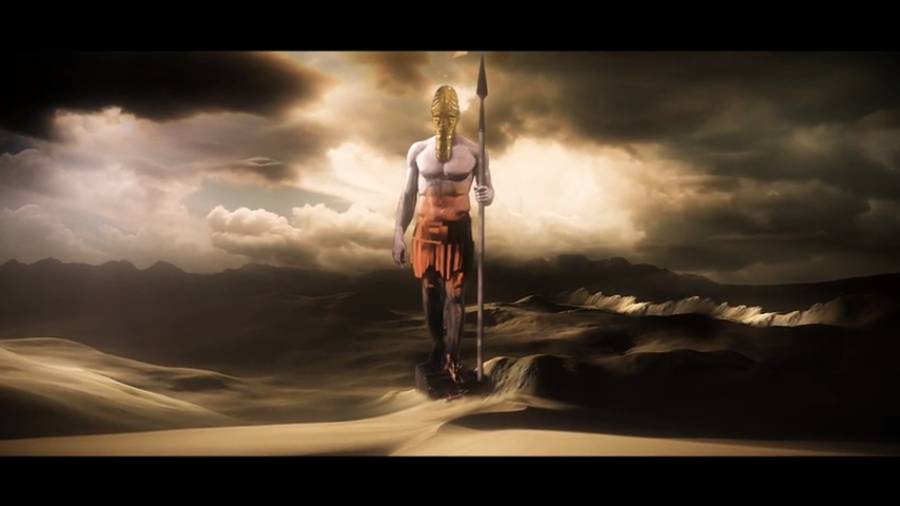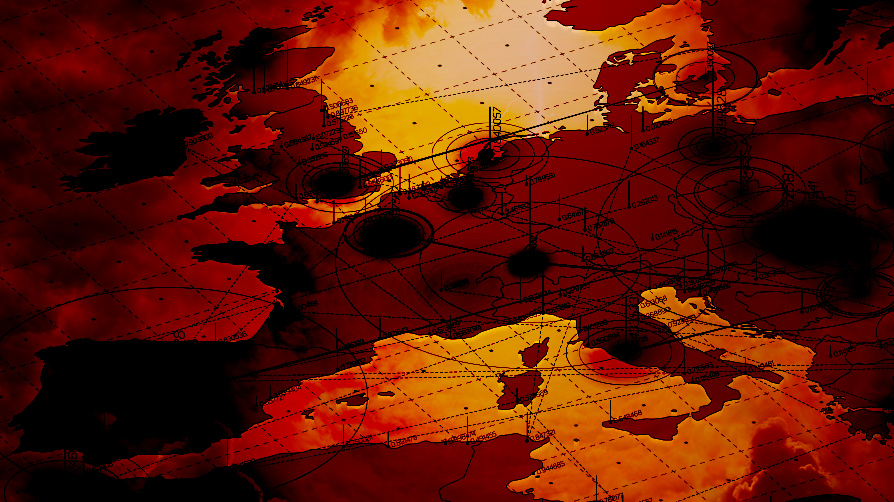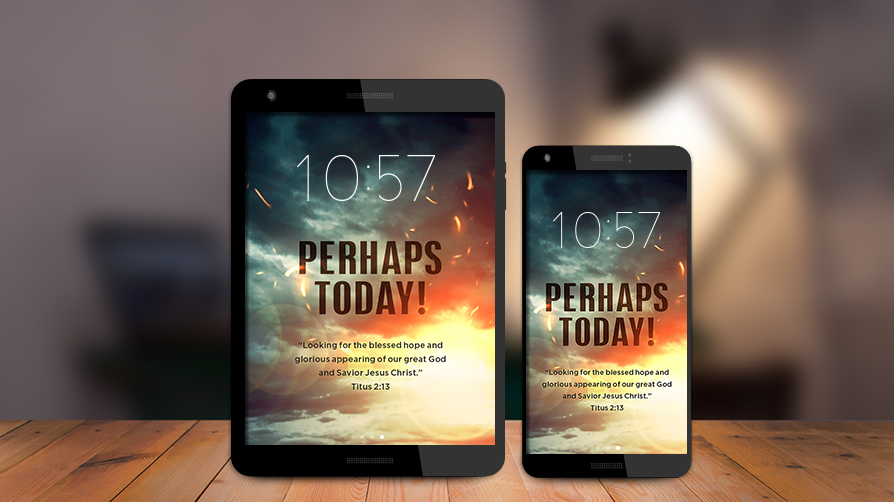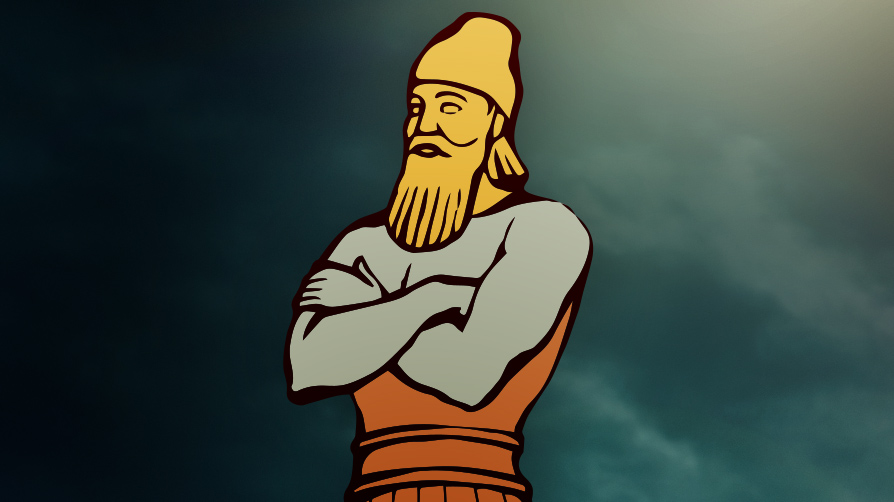

Dr. David Jeremiah Presents
Living inthe Ageof Signs
Online Destination

Living in the Age of Signs
Online Destination

Learning to Learn
Today’s Audio Devotion:
Learning to Learn
A four-year-old can play “Chopsticks” on the piano, but a fourteen-year-old can play Brahms’ “Lullaby.” A four-year-old can read short words, but a fourteen-year-old can read novels. A four-year-old can ride a bike without training wheels, but a fourteen-year-old can fly down a trail on a mountain bike. What is the key element in all these progressions of skill? It is learning.
But it is not just physical or mental skills that can be learned; spiritual skills can be learned as well. The Greek word for learn is the verb form of the word for disciple—a learner or pupil. Both words mean to learn by practice, instruction, and experience. Learning presupposes a lack of knowledge or skill that is later gained through practice, instruction, and experience. So when the apostle Paul said, “I have learned...to be content,” he was saying he hadn’t always been content—that he had been dissatisfied, impatient, or discontent.
When you feel discontent, ask God to teach you contentment in whatever way He chooses. Learning takes time, patience, and humility.
Contentment with what we have is absolutely vital to our spiritual health.
Jerry Bridges
For Your Phone or Tablet
Official Mobile App and Lock Screens
Some 2,600 years ago, God gave King Nebuchadnezzar a dream. In this dream, the king saw a five–part statue made of five different metals (see Daniel 2). Each section represented an empire, beginning with Nebuchadnezzar's Babylon. Four of these empires have already risen and fallen in history—a clear fulfillment of Daniel's prophetic interpretation. The fifth and final empire indicates a future Europe—a ten nation coalition that will unite under the Antichrist's rule.
You can read about the King's dream and Daniel's interpretation in Daniel 2, but let's take a quick visual look at what you will find:
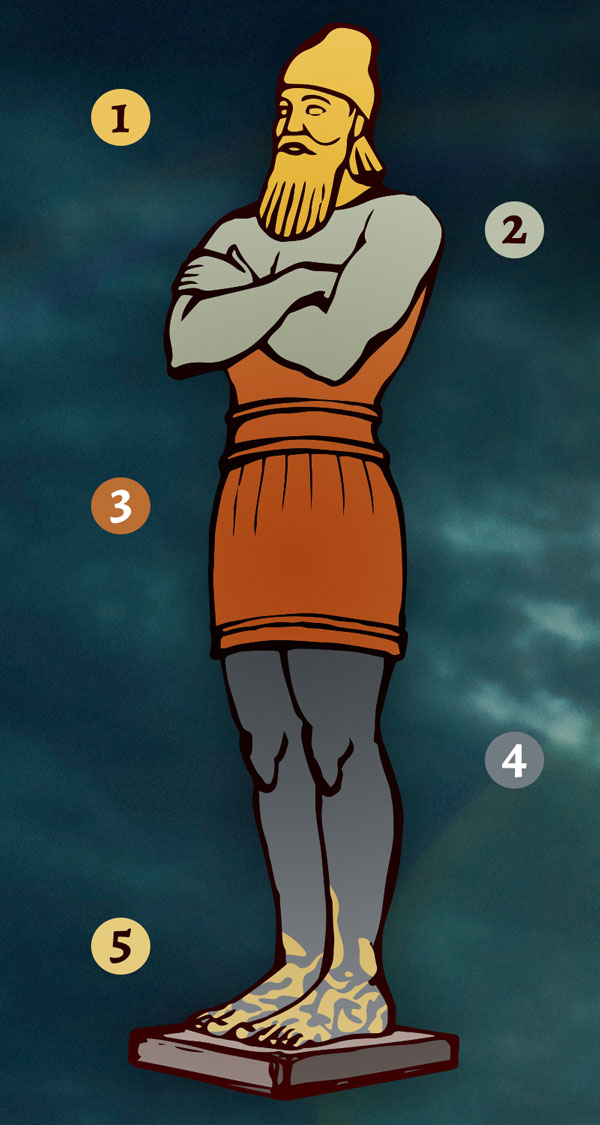
-
King Nebuchadnezzar's Babylon
Daniel's words to the king are clear. "You are this head of gold" (Daniel 2:37–38).
-
Medo–Persian Empire
The Medo–Persian Empire conquered Babylon in 539 BC and remained in power for approximately two hundred years (Daniel 5:28).
-
Grecian Empire
Greece's Empire succeeded the Medo–Persians (Daniel 8:21).
-
Roman Empire
When the Grecian empire was conquered by Rome, all the lands and peoples of the previous kingdoms were assimilated into the Roman Empire through the strengths of the "iron legions of Rome" (Daniel 2:40).
-
Future European Coalition
This empire has not yet risen. Daniel foretells a time when the Roman Empire—Europe—will consist of ten kingdoms or leaders. The future Roman Empire will be present on the earth when God sets up His earthly kingdom (Daniel 2:44).


